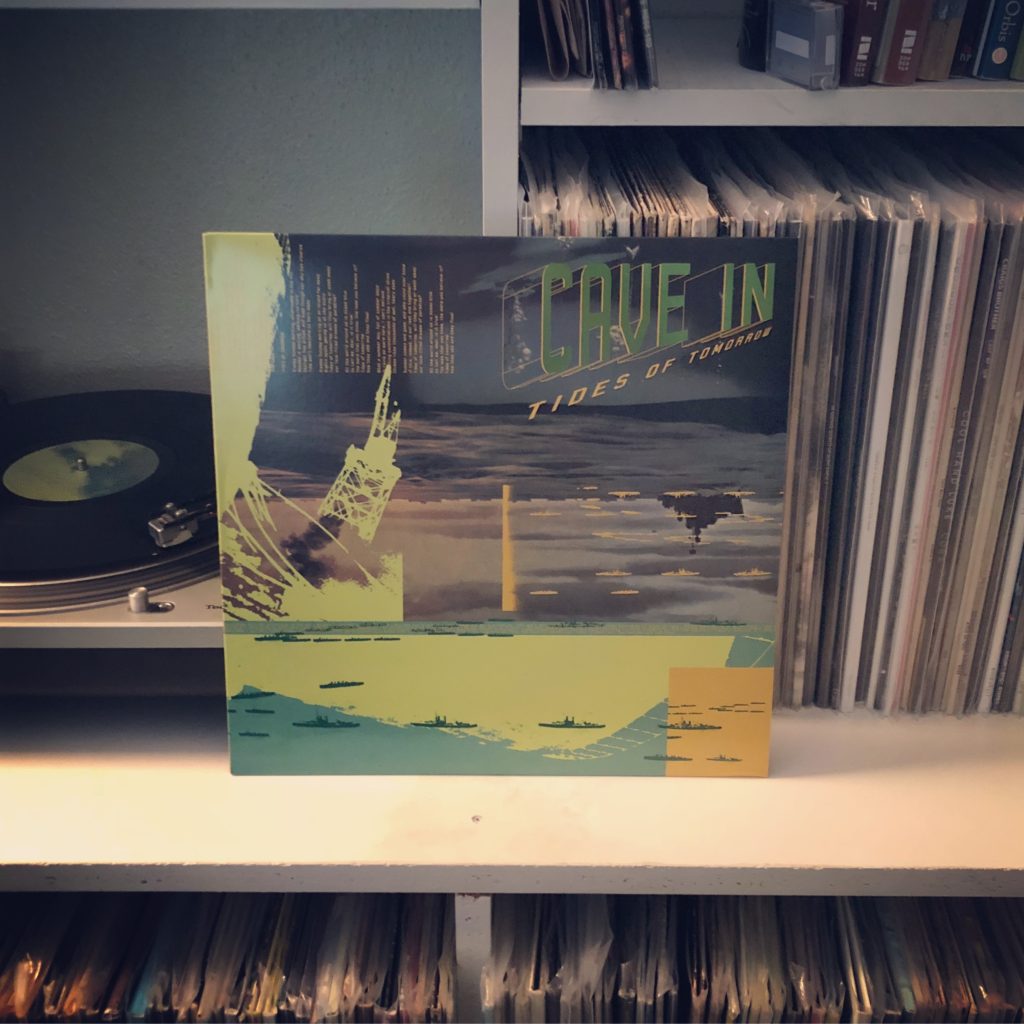
After metalcore mavens Cave In released the spaced out, alternative metal masterpiece Jupiter, much of their fanbase was alienated—even as critics lauded them.
Anyone hoping that Jupiter was a one off was even more disappointed by Tides of Tomorrow, a six-song EP that features some of the group’s most melodic output.
Jupiter had already garnered a number of Radiohead comparisons—most chiefly due to their copious use of pitch shifters and delay. Tides of Tomorrow wouldn’t offer any sort of rebuttal.
The “metal” half of the “alternative metal” tag is almost entirely dropped here. The title track has a breezy quality that could almost be called lounge, if you were dealing with like, a really cool lounge. “The Calypso” could have been a college radio staple if it was released by someone who didn’t used to be a metalcore band. The moody, acoustic guitar-driven “Everest” could be a ballad, were it not for the heaviness employed by the band.
There’s still some heft here though. The late Caleb Scofield’s crunching bass rides under the clean guitars and acrobatic melodies of “Come Into Your Own.” “Dark Driving” is dark and brooding. Its almost bluesy verses explode into a huge wall of buzzsaw guitars and plodding drums. Their cover of “The Callus” by underground emo outfit Giant’s Chair (which is a deep, deep cut) betrays their expanding influences—even though it ends up being the most cathartic track on the record. Even “Tides of Tomorrow” ends up exploding by the end of the song.
Of course, most of the press on this EP mentions that Tides of Tomorrow was the last thing Cave In released on metal label Hydra Head before their major label debut on RCA. But treating this like a transition piece between Jupiter and Antenna is a bit reductionist.
Sure, it might not be the most characteristic bit of their output. But throughout their career, Cave In proved time and time again that they were not bound by anyone’s ideas of what Cave In should sound like. They were voracious devourers of influences outside of the metal and hardcore scenes, and they weren’t afraid to shape their own sound around it, no matter how loud the voices yelling about what is or is not metal grew around them. And for a band on Hydra Head to write a song like “Tides of Tomorrow,” that’s downright adventurous.